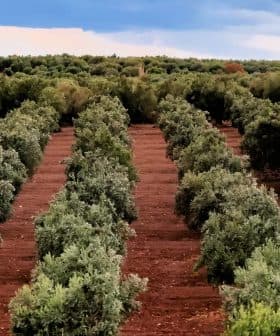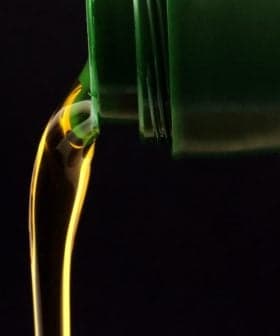New U.S. Olive Oil Standards in Effect Today
California olive oil producers are anticipating the impact of new USDA standards for grades of olive oil, which aim to ensure conformity with benchmarks accepted in the US and abroad. The standards, initiated by the California Olive Oil Council, are voluntary but provide a legal reference for producers and promote truth in labeling, ultimately benefiting ethical producers and consumers seeking quality products.
California olive oil producers are watching for the impact, if any, of the new USDA standards for grades of olive oil which take effect today. The new standards, a revision of those that have been in place since 1948, will affect importers and domestic growers and producers by ensuring conformity with benchmarks commonly accepted in the US and abroad. This day marks the culmination of years of effort and a new beginning for California olive oil buyers and producers.
A positive move for ethical producers who have had to compete with unscrupulous blenders
The standards, initiated by the California Olive Oil Council (COOC), define the different grades of olive oil, using terms that are consistent with those in the marketplace and similar to the definitions used by the International Olive Council. They also promote truth in labeling by providing a basis for enforcement by state and federal agencies if products are mislabeled.
The COOC has worked hard and waited a long time for these standards to go into effect. Patricia Darragh, Executive Director of the COOC, says they are “thrilled because we filed the petition five years ago. It provides buyers a common language for oils,” Darragh continues, “which is also a positive move for ethical producers who have had to compete with unscrupulous blenders who charge a premium for low and poor quality oils.”

The standards, however, are voluntary which means producers choose whether to seek USDA certification for their products. Regardless, Darragh believes “it’s a terrific first step,” and it provides a legal reference, but she adds, “we’d like enforcement at some point.” For the COOC, this day may mark the end of a satisfying effort to bring the standards this far, but it’s still the infancy of what may be a long journey toward compliance and enforcement.
Producers who wish to certify their product as US Extra Virgin Olive Oil may now begin the process of having it inspected by the USDA. A USDA inspector will pull samples to be sent to the USDA lab in Blakely, Georgia, where a tasting panel trained in sensory analysis tests them. The lab and its staff have been preparing for this day for more than a year. Bottles of certified oils will bear the USDA certification seal.
Those in the industry aren’t the only ones involved in the ultimate success of the new standards. The role of the consumer will be vital. Alexandra Kicenik Devarenne, Sonoma County-based olive oil consultant and educator, believes American consumers need to take on the responsibility of educating themselves with the help of ethical producers and retailers. “The conversation needs to include transparency,” explains Devarenne. “Where did those olives really come from? Who made this oil? When was it milled? Is this a bulk commodity traded only on the basis of price? Or is this from an ethical producer who cares about the quality of their process and their product?”
Though the lasting impact remains to be seen, the consensus among California growers and producers is that the new standards are a forward stride for those in the industry and consumers alike. Consumers choose extra virgin olive oil expecting a premium product renowned for its taste and healthful properties. The new USDA seal will at least indicate that the olive oil has earned the grade.









